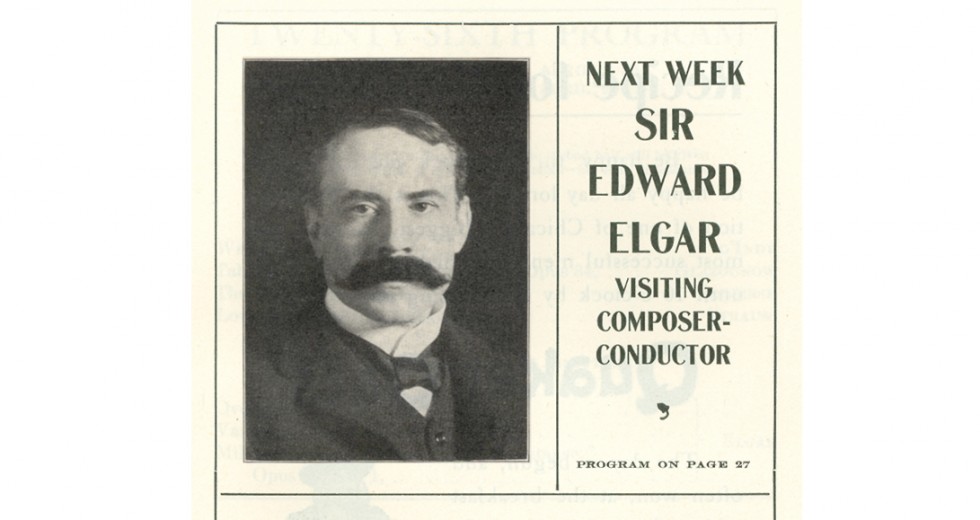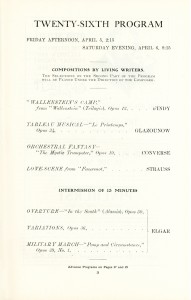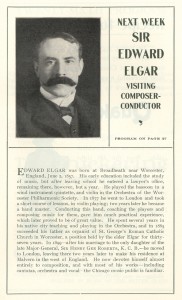
On April 5 and 6, 1907, Frederick Stock programmed a concert of “compositions by living writers,” including music from five countries. The first half opened with Vincent d’Indy’s Wallenstein’s Camp (France), Alexander Glazunov’s Spring (Russia), Frederick Converse’s The Mystic Trumpeter (United States), and the love scene from Richard Strauss’s opera Feuersnot (Germany). The second half of the concert was dedicated to England, with Sir Edward Elgar on the podium leading his overture In the South (Alassio), Variations on an Original Theme (Enigma), and the first Pomp and Circumstance March.
“The patrons of the Thomas Orchestra paid willing and hearty tribute to Sir Edward Elgar yesterday afternoon in Orchestra Hall,” wrote William Lines Hubbard in the Chicago Daily Tribune. “The men of the Orchestra gave him their closest attention and heartiest sympathy yesterday, and the result was a performance of the three compositions which was technically and tonally of highest worth. Sir Edward himself seemed genuinely pleased and his assertion after the concert that the ‘work of the Orchestra surpassed all his fondest expectations’ evidently was the expression of his true feeling.”
Chicago audiences were well versed in Elgar’s catalog, as by then the Orchestra had given the U.S. premieres of several of his works: the Cockaigne Overture, Enigma Variations, the first two Pomp and Circumstance marches, Incidental Music and Funeral March from Grania and Diarmid, and In the South under Theodore Thomas; the Froissart Overture and Violin Concerto (with Albert Spalding) under Stock; and The Dream of Gerontius under Harrison M. Wild, then director of the Apollo Musical Club.
In 1911, England’s Sheffield Choir embarked on a six-month world tour, and Elgar joined them for several performances in the U.S. and Canada. Their tour included three concerts in Chicago collaborating with the Orchestra, the second of which featured Elgar on the podium leading The Dream of Gerontius.
This article also appears here.

